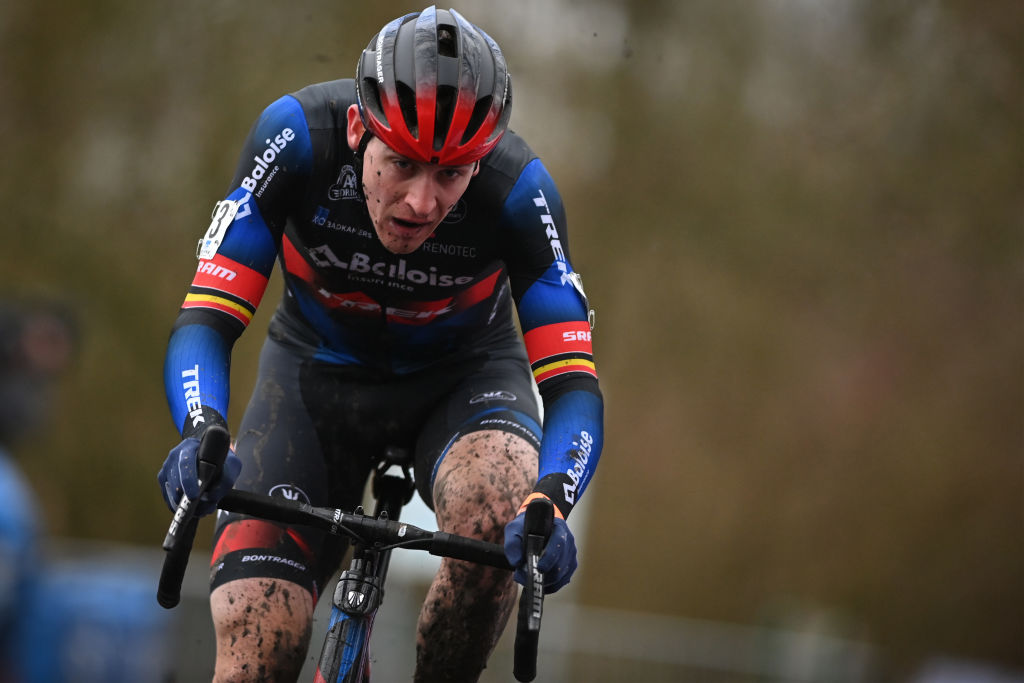Toon Aerts faces two-year ban for letrozole positive
Belgian cyclocross rider still hopes to prove his innocence and race in 2024

Belgian cyclocross rider Toon Aerts has revealed he faces a two-year ban from racing but continues to insist he is innocent and named February 16, 2024 as a possible comeback date.
Aerts tested positive for a letrozole metabolite last January. The drug is abused by people who use anabolic steroids and want to block feminising effects or boost testosterone production. It is prohibited in and out of competition and is considered a "specified substance" that does not require a mandatory provisional suspension.
The sample was taken 10 days before the UCI Cyclo-cross World Championships in Arkansas, where Aerts finished in sixth place. He stands to be stripped of that result as well as his victory in Lille on February 6, a third place in the Gavere Superprestige.
Aerts could have raced on in 2022 until a final verdict but opted to self-suspend from racing as he and the UCI worked through the case. He was placed on inactive status by his team Baloise-Trek.
Aerts’ lawyers believe he tested positive due to contamination but have yet to prove how. The UCI have offered a two-year ban due to Aerts’ failure to explain his case but he said he wants to prove his innocence.
"I have to tell the world something that I actually don't want to. Unfortunately this week I received a letter from the UCI that no one wants to receive. It says that the UCI is proposing a 2-year suspension," Aerts said in a press conference in Belgium, breaking down in tears several times.
"That means that I can start a cyclocross race again on February 16, 2024 at the latest. But I want to keep proving my innocence.
Get The Leadout Newsletter
The latest race content, interviews, features, reviews and expert buying guides, direct to your inbox!
"This is a very severe punishment. A much too severe punishment for someone who can say with a clear conscience that he is not a doping sinner. I have never had the intention to use doping and I have never voluntarily taken doping products to improve my performance.”
Positive tests for a specified substance like letrozole are usually punished with a two-year suspension but can be reduced if the athlete proves the substance entered their body unintentionally.
The ban can be further reduced to between one year to no ban at all by proving "No Significant Fault or Negligence", through a contaminated supplement.
Fellow cyclo-cross racer Denise Betsema escaped a positive for an anabolic steroid, which could have ended in a four-year ban, with an off-season, back-dated six-month suspension this way.
Italian tennis star Sara Errani tested positive for letrozole in 2017. She argued that her mother had contaminated the family's tortellini with the breast cancer drug and was initially given a two-month suspension. However, the Italian anti-doping agency took the case to the Court of Arbitration for Sport and extended her ban to 10 months.
Aert’s lawyers claimed the amount of the letrozole metabolite found in the sample is very small, thus indicating contamination. But almost a year after the test, Aerts has still to explain how letrozole entered his body.
"We can say with 100 per cent certainty that that product ended up in Toon's body due to contamination," Yannick Prévost said, sitting alongside Aerts in the press conference.
"We suspect the source of contamination, but that has not yet been confirmed. We will continue to analyse supplements and any potential issues that Toon may have taken during that time. Hopefully we will find a track on which we can continue working."
Hair analysis can perhaps play a part in Aerts' defence, identifying substances in his body and the time they were taken. That is why Aerts has refused to cut his hair since being notified of his positive test.
"Hair samples often provide a breakthrough in murder cases," Aerts said. "Now we will use it in a doping case, because the evidence is in my hair."

Stephen is one of the most experienced member of the Cyclingnews team, having reported on professional cycling since 1994. He has been Head of News at Cyclingnews since 2022, before which he held the position of European editor since 2012 and previously worked for Reuters, Shift Active Media, and CyclingWeekly, among other publications.